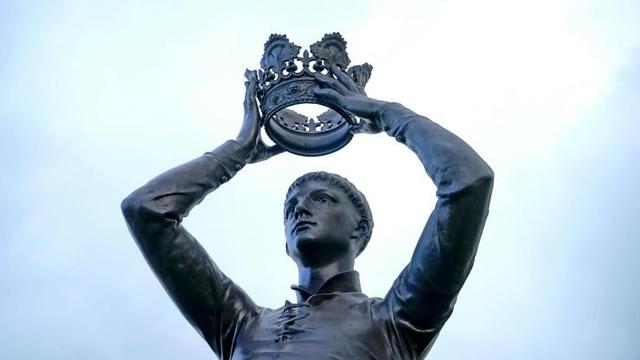Mandate of Heaven
This is called tianming in Chinese, literally Heaven’s command.
This is a philosophical concept & political justification used in ancient China & Imperial China to legitimize the rule of kings/emperors of China.
According to this idea, Heaven/Shangdi/Tian gives its mandate on a virtuous ruler or that a ruler’s authority comes from a divine ruler. This ruler is called the Son of Heaven, who’s the supreme universal monarch will rule over the earth (or Tianxia, “all under Heaven”). This mandate isn’t permanent right but it’s conditional upon the ruler’s virtue, morality, & ability to govern justly.
A ruler who’s benevolent & looks after the welfare of their people maintains the Mandate. But 1 who becomes tyrannical, unjust, or neglects his/their can lose the Mandate. If a ruler is overthrown, this was interpreted as an indication that the ruler & his/their dynasty were unworthy & had lost the Mandate.
It was also a common belief that natural disasters such as famine & flood were divine retributions bearing signs of Heaven’s displeasure with the ruler. So there would be often revolts following major disasters as the people saw the calamities as signs that the Mandate had been withdrawn.
The Mandate of Heaven is a concept with a few central tenets:
The concept of the Mandate of Heaven originated during the Zhou dynasty, which was used to overthrow the previous Shang dynasty, the Zhou rulers claimed that the Shang had become corrupt & that Heaven had given the Mandate to them instead.
It’s been used throughout the history of China to legitimize the successful overthrowing & installation of new dynasties, including by non-Han dynasties such as the Qing dynasty. The Mandate has been called the Zhou dynasty’s most important contribution to Chinese political thought. But it coexisted & interfaced with other theories of sovereign legitimacy. This includes abdication to the worthy.
The Mandate of Heaven provided a powerful moral & religious framework for political change & stability in Chinese society for over 2 millennia. The Mandate wasn’t a formal legal document. But a moral & philosophical one.
Because of China’s influence in medieval times, the concept of the Mandate of Heaven spread to other East Asian countries as a justification for rule by divine political legitimacy. In Korea, the kingdom of Goguryeo (one of the Three Kingdoms of Korea) adopted China’s concept of tianxia.
However, in Goguryeo, it was changed to be based on divine ancestry. In the Goguryeo story, Jumong was born to Hye Moss, the son of the Emperor, & Yu Hwa, the daughter of Habaek, the god of water.
When Yuhwa was pregnant, she entrusted her body to the king of Buyeo & laid an egg. The person who came out of the egg was Jumong. When Jumong grew up & performed arious strange tricks, the sons of King Buyeo became jealous.
Jumong eventually fled from Buyeo & built a country called Goguryeo. This is a case in which Goguryeo claimed the legitimacy of expelling Buyeo under the command of Heaven by setting him as the son of God.
Recently, China historians have noted that the ruler’s Mandate of Heaven had a more local equivalent. This applied to county magistrates & prefects in Ming times. They were called the “Minor Mandate.”
One-Time Monthly YearlyMake a one-time donation
Make a monthly donation
Make a yearly donation
Choose an amount
$1.00 $5.00 $10.00 $1.00 $5.00 $10.00 $5.00 $10.00 $15.00Or enter a custom amount
$Your contribution is appreciated.
Your contribution is appreciated.
Your contribution is appreciated.
DonateDonate monthlyDonate yearly
#AncientChina #Buyeo #China #Chinese #DivineAncestry #DivineApproval #Dynasties #EastAsia #Emperors #Goguryeo #Habaek #HanDynasty #Heaven #HunDynasty #HyeMoss #ImperialChina #Jumong #KingBuyeo #Kings #Korea #MandateOfHeaven #Medieval #Ming #MingDynasty #MinorMandate #QingDynasty #RightToRebel #ShangDynasty #Shangdi #SonOfHeaven #ThreeKingdomsOfKorea #Tian #Tianming #Tianxia #YuHwa #Yuhwa #ZhouDynasty

